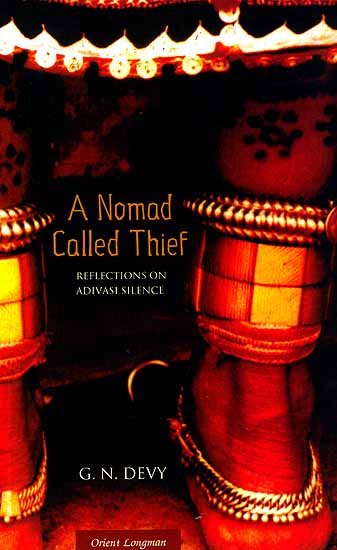The extinction of languages leads to cultural loss and disinheritance of the human race as a part of its collective past vanishes, argues G.N. Devy
The silence the eminent scholar and cultural activist G.N. Devy refers to in The Question of Silence is a malaise of modernity. | To read the full book review, click here >>
An estimate by the UN’s cultural body counted 7,000 languages worldwide at the beginning of the 20th century, of which only some 300 are expected to survive to the end of the 21st.
The scenario that Devy sketches in India points to more catastrophic loss. Between the Indian census enumerations of 1961 and 1971, the number of languages listed fell from 1,652 to 109. This was a policy decision born in nationalist paranoia. As the war for the liberation of Bangladesh raged in 1971, census authorities seemingly determined that India’s safety lay in reducing linguistic multiplicity to manageable numbers.
Other measures by which states consolidate their authority could result in cultural dis-entitlement. The colonial government’s notification of social groups as ‘criminal tribes’ mischaracterised an independent streak as incurable delinquency. It effectively externed entire groups into a limbo of lawlessness, where they were deprived of basic protections. That legacy lives on in independent India, despite a republican constitution promising equality.
The corporate assault that reduces language to a commodity that can be packaged in cultural products is another threat. Modernisation proves an enemy of diversity in its quest of convenience and communicative efficiency. A variety of Indian languages emerged from Sanskrit, Dravidian and Persian roots through the 14th to the 18th centuries. Often, these were written languages that used multiple scripts. Any one script likewise, could be used for various languages.
That spirit of equality and not least, cultural generosity, may be difficult to retrieve, but Devy’s book gives hope. For those who may lack access to the larger body of his work, this volume provides a conspectus of sorts, in language that is easy and deeply intimate.
The Question of Silence – A Para-biography; G.N. Devy, Orient BlackSwan, ₹475
Source: “The Question of Silence – A Para-biography review: Republic of threatened voices” by Sukumar Muralidharan, The Hindu, 4 January 2020
URL: https://www.thehindu.com/books/books-reviews/the-question-of-silence-a-para-biography-review-republic-of-threatened-voices/article30471400.ece
Date visited: 8 January 2020
[Bold typeface added above for emphasis]
Please use this search window to find books published in India
by the above mentioned authors and others on related issues
Technical support
Try the following in case Google Custom Search window or media contents are invisible here: (1) switch from “Reader” to regular viewing; (2) in browser’s Security settings select “Enable JavaScript”; (3) check Google support for browsers and devices | More >>
Research the above issues with the help of Shodhganga: A reservoir of theses from universities all over India, made available under Open Access >>
Find publications by reputed authors (add “open access” for freely downloadable content)
PDF-repository: texts quoted & further reference (Google Drive) >>

Reflections on Adivasi Silence and Voice by Ganesh [G.N.] Devy | Publications >>
Learn more
Adivasi Academy & Museum of Adivasi Voice at Tejgadh
Adverse inclusion | Casteism | Rural poverty
Anthropology | eBooks, eJournals & reports | eLearning
Central Institute of Indian Languages (CIIL) Mysore
Colonial policies | Denotified Tribe vs. “criminal tribe“ | Imprisonment & rehabilitation
eBook | Adivasi Stories from Gujarat – Bhasha Research and Publication Centre (Vadodara)
eBook | Background guide for education
Endangered language | PeoplesLinguisticSurvey.org
Ganesh [G.N.] Devy | Publications | Lecture “A View of Higher Education in India”
History | Colonial policies | Freedom Struggle | Independence
Human Rights Commission (posts) | www.nhrc.nic.in (Government of India)
India’s Constitutional obligation to respect their cultural traditions
Languages and linguistic heritage
Literature and bibliographies | Literature – fiction | Poetry
Multilingual education is a pillar of intergenerational learning – Unesco
Museum & Society – A re-evaluation of Adivasi Heritage by Prof. Ganesh Devy
People’s Linguistic Survey of India | Volumes (PLSI) | PeoplesLinguisticSurvey.org
Scheduled Tribes | Classifications in different states
Video clips taken at Tejgadh and related information
Video | “Nations don’t make us human – languages make us human”: Ganesh Devy
Video | Tribes in Transition-III: “Indigenous Cultures in the Digital Era”
Tip: click on any red marker for details on endangered languages in a particular region of India.
Please note: the facts and figures cited (via hyperlinks) links call for updates and fact checking >>
Cultural invisibility – India’s 600 potentially endangered languages | Linguistic Survey of India (official website) >>